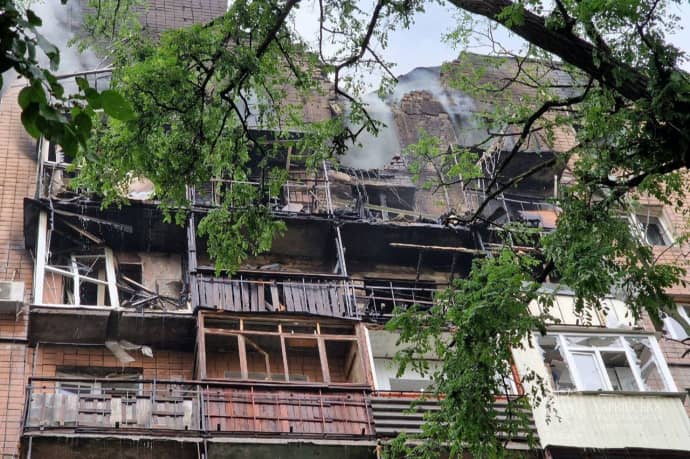Dad Tasiemka – who was the largest gangster of pre -war Warsaw
– I heard, I heard. All Warsaw is shaking. Polish minister to rob under the church? Unthinkable. But it’s not ours. Our general would not move – he was to say in the police station a « Tasiemka », and then left. On the second day, the wallet of General Sławoj Składkowski returned by post. Inside: ID cards, photos and card. A valgus magazine: « Mr. Miniszcze, make watching thieves. »
Who was Łukasz Siemiątkowski? A simple boy from Milanówek, son of a carpenter. He started as a worker at the Tasielek factory – hence the nickname. He had no education, but he had a head to politics and character for a gang. Already before independence, he proved to be a PPS fighter. The attacks on tsarist officials and the famous action of reflecting prisoners from Pawiak in 1906 built his tough guy legend from the street. Then there was an interview of the 1st brigade, recruitment to the Legions. After the assassination at German agents, he went to the Citadel and heard a death sentence. But he was lucky. Three days before the execution, Poland regained his freedom – and freedom saved him from the stry. And later? Own empire at Kercel Square – the largest pre -war Warsaw bazaar. You could get everything here: from sausages and tripe to a pistol, watch and even a Bengal tiger. When others wrote the laws, he began to write his own right – on the cobblestones, a shoe and a razor.
In Kercelak he reigned like Capone in Chicago. He demanded « tithes » from traders – 10 percent of each transaction. From the wedding, from the funeral, from daughter’s dowry. Who did not pay, the nails were killed to the store. « Surprise, » his people said. For a photo of nails – PLN 150. For resistance – hospital. For a denunciation – a coffin.
But often it was not the victim who paid the highest price – only her loved ones. The tapewood fatejna hit the most sensitive points: mother, wife, child. They threatened with death, rape, ear cut. And they kept their word. The first time – threats. Behind the second – a knife. Behind the third – execution.
In one of the stories, a woman – terminally ill – she confessed to her husband that the gang demanded money from her under the threat of her father’s death. The husband ran to the police. He came to the middle of the street. He was stuck there.
But there were also tragedies worse than death. As the « secret detective » described, the gang came to one of the merchants right after the wedding – for a percentage due. The young husband threw 150 zlotys on the table, with contempt: « on the detachable ». They considered it the cheek.
The next day, when he was at work, five ribbons rolled into his apartment. They raped his young wife so brutally that – as the press wrote – they infected her with an incurable disease. The desperate man went to the police station, but only a dark blood spot was left on the pavement.
This is how the ribbon worked. Who did not pay, not only lost business. He lost dignity, health and family. Sometimes a face, and literally. And justice? She was at the time on a full -time one.
Dintojra, Crydziek houses and political umbrellas
He set everything. Dintojry in pubs – hood courts watered with cognac and beating. Houses of Crydziek in Żurawia, where « Aunt Bojakiewiczowa » paid tribute for protection. Even politics was his game. He had an ID card of the city of Warsaw, a photo with Piłsudski and friends from militia, who after years went to the Sejm, government and the office of the Prime Minister. During the fight for independence, he sat in one cell in Modlin with Walery Sławek – later prime minister – and MP Norbert Barlicki.
PPS was silent. Maybe that’s why – according to various historical sources – that some of the income from tribute went to the party coffers.
Gang like Chicago
His right hand, Pantaleon Karpinski – a man without his neck and conscience – walked around the bazaar with guards and pulled tributes like a medieval castellan. The ribbon rarely appeared in person. He preferred to « manage » from the pub. He had respect. He had fear. And he had an iron rule: order must be – even thieves have their own rules.
The fall of the godfather
But he underestimated the press. Nor desperation of small buyers. In 1932, « Secret Detective » described his activities as a mafia structure of terror. People started talking. Police to act. And suddenly the « godfather Kercelka » was brought to the role of the accused on a court bench.
He was detained with a whole bunch. The investigation lasted for months. 150 witnesses. 44 proven cases of intimidation, self -ranges, racketeers. One buyer was broken, another died as a result of beating. And yet – Siemiątkowski came out of custody. The authorities did not want to say goodbye to him.
From Fajna to Majdanek
He got three years in prison. After the appeal – only two. President Mościcki pardoned him with suspension. He lost the mandate of the councilor, but not influence. And then came the greatest irony of this story: in 1937 he was awarded the Cross of Independence. It was forgotten to mention that he was legally convicted. When the scandal came to light, just before the war – the award was taken away.
Then the war came. The ribbon, as if in the act of penance, joined the underground activities. In 1942 he came to Pawiak and then to Majdanek. There, in February 1944, he died of typhus. Not from the ball. Not on the street. In the shadow of history. He was 68 at the time of his death.
Helka remembers Rum
But Warsaw did not forget. Grzesiuk sang about him in « Rum Helce », the kids repeated his name in the courtyards, and in pubs there were still stories about how one man could stop the theft … of the minister’s portfolio.
Because he was the king of the street. And he wrote the constitution himself.
(Sources: « secret detective », archival interwar press, memories of FS of Składkowski)
See also:
Someone desecrated the grave of Ala Capone. What has scratched on him?
Serial killer in the wild. Netflix made a series about him. « I still have a lot to do »





